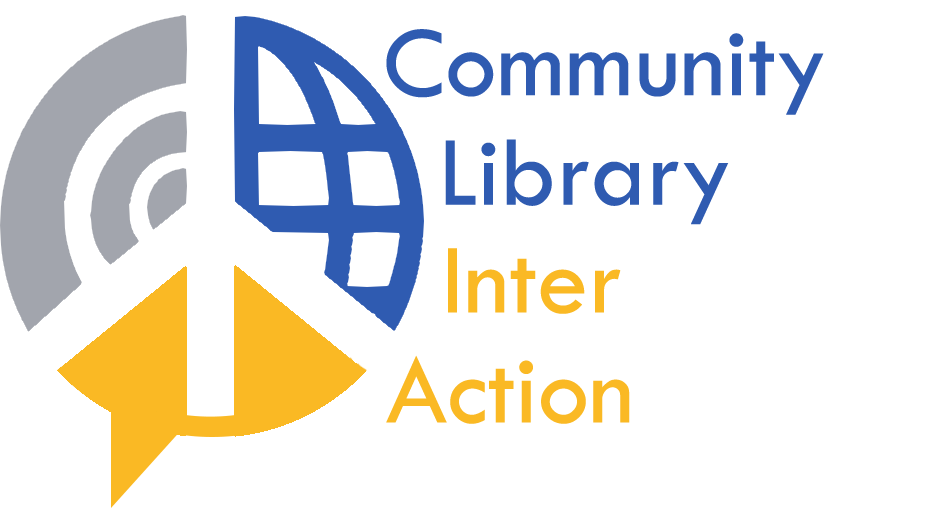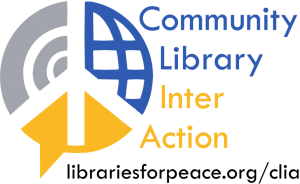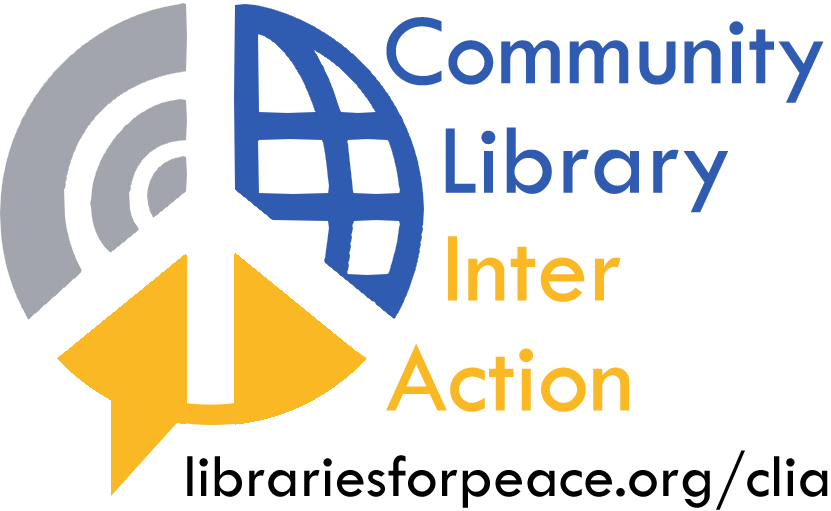
Libraries are community anchors, playing a key role in developing peaceful and sustainable communities. Across the world, local communities are experiencing civic unrest, conflict, disconnectedness, etc., which calls for communities to understand, reflect and act on commonly identified issues, and to develop community capacity building processes to advance community knowledge, intercultural understanding, empowerment and solutions. The Community-Library Inter-Action Project – CLIA responds to this need by supporting libraries to facilitate local dialogue and community action. In this context libraries contribute to the collective action and impact on the part of libraries worldwide to advance peaceful and sustainable communities. [Click <here> for a more specific description of CLIA. Para leer en Español, haga click <aquí>.]

CLIA is a process where libraries play a meaningful role in supporting community capacity building for social transformation which engages three core elements/values:
 1. Democratic dialogue
1. Democratic dialogue
2. Social cohesion, inclusion, equality and diversity
3. Informed civil and civic action
Community-Library Inter-Action (CLIA) processes enable libraries to strengthen their role as community anchors by working WITH, not just FOR communities and by being socially rather than goal-driven. The project is part of the Libraries for Peace Initiative, which advances the mission of the Mortenson Center and the United Nations Sustainable Development Goal 16. This project has three phases:
Phase 1. Participation of libraries in a lab format to co-develop the CLIA guide in the United States.
Phase 2. Participation of libraries to co-develop the guide in Colombia to support libraries in the Colombian peace process.
Phase 3. Global implementation and learning through community dialogues using the guide hosted at this site, Libraries for Peace.
“Active learning for active citizenship for adults is an on-going process of learning and reflection firmly rooted within civil society itself, working towards empowerment, supporting organisations and groups within communities and pursuing agendas for equalities and social justice.” (UK Take Part Learning Framework 2006-2011)
The Community-Library Inter-Action Project –CLIA is a collaborative project which builds on the experience of the Mortenson Center developing librarians worldwide, including its Libraries for Peace initiative, and the international expertise of the University of Lincoln and the Take Part Research Cluster in community-based research, including the Take Part Learning Framework for Active Citizenship Learning. It is coordinated by Clara M. Chu (University of Illinois at Urbana-Champaign, USA) and Zoraida Mendiwelso-Bendek (University of Lincoln, UK).
Join CLIA!! More information forthcoming.
[The public library (PL) as] space allows the community to learn to know, to do/act, to live together and to be, in the role of citizens, protagonists of their own reality, able to define their life projects, to manage and decide each one of the aspects that they experience in everyday life. Thus, the PL transcends the concept of book warehouse, temple of knowledge and place for schoolchildren, to become an active and sensitive part of the community and an agent of change, based on new ways of relating with neighbors, which awakens civic engagement, encourages citizen participation and fosters a greater degree of intervention in the decision-making processes and solving community problems (McDermott, 2010)
Translation from Spanish of Jaramillo, Orlanda. “Bibliotecas Públicas en Colombia: Territorio de Paz” [Public libraries in Colombia: Land of Peace], El profesional de la información, 25 (5): 815-21, 2016. Accessed 1/24/17 at http://www.elprofesionaldelainformacion.com/contenidos/2016/sep/12.pdf
 1. About CLIA : Co-developing CLIA
1. About CLIA : Co-developing CLIA
2. Activities
3. Current Projects: CLIA-Iberoamérica | CLIA Colombia-Universidades
4. CLIA Resources


